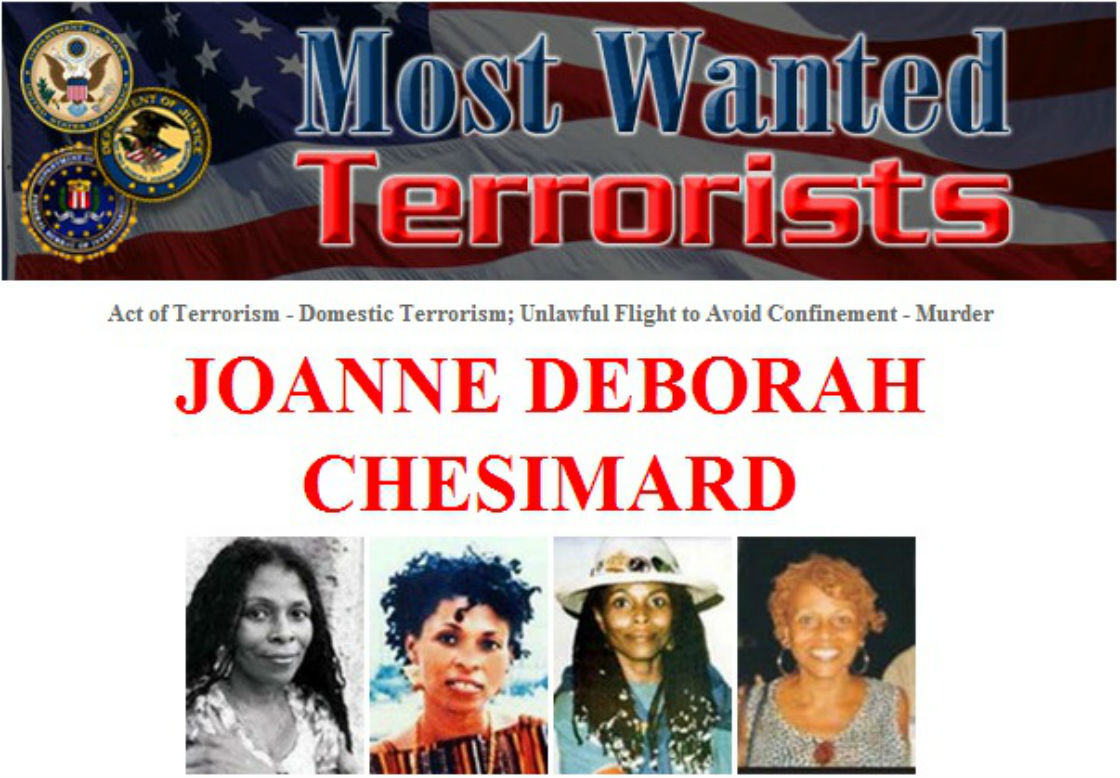The first woman to make the FBI’s Most Wanted list is a 65-year-old former Black Panther with a rapper nephew and a one-time ally in ailing Cuban leader Fidel Castro.

Assata Shakur, formerly known Joanne Chesimard, has a $2-million (US) award put on her head Thursday – 40 years after the death of a state trooper she was convicted of killing.
“On the 40th anniversary of the cold-blooded murder of a New Jersey state trooper, the fugitive convicted of the killing, Joanne Chesimard, has been named a Most Wanted Terrorist by the FBI—the first woman ever to make the list,” a statement on the FBI website reads.
The FBI calls her “a danger to the American government” and considers her a domestic terrorist, for her involvement with the Black Panther Party and the Black Liberation Army (BLA) — both militant organizations.
She may be “on the run,” but she’s not exactly in hiding. Shakur has been living just 170 kilometres out of reach, in Cuba, for nearly two decades.

Get breaking National news
She escaped from a New Jersey prison on 1979, two years into a life sentence for first-degree murder. Shakur evaded police and claimed political asylum in Cuba, where she won the support of Castro.
Shakur, also a former member of the Black Liberation Army, was in a car with two other individuals the night of May 2, 1973, when state troopers Werner Foerster and James Harper pulled the vehicle over for a traffic violation.
She was wanted in connection with a bank robbery and several other offences, at the time.
Foerster died in a gun battle, a shootout which also left Shakur with a gunshot wound and her brother-in-law dead. The third accomplice in the deadly face-off remains in prison.
Lennox Hinds was Shakur’s lawyer at the time. He told Democracy Now on Thursday that none of Shakur’s alleged crimes were terrorist activities and her addition to the Most Wanted Terrorists list is a bid to “inflame public opinion” against her.
“So, the allegation by the state police that she took an officer’s gun and shot him, executed him in cold blood, is not only false, but it is designed to inflame,” he said.
Despite not having an extradition agreement between the U.S. and Cuba, there have been effort to get Shakur back on U.S. soil.
In the late 1990s, both the FBI wrote to Pope John Paul II, asking him to use his influence to convince Castro to turn Shakur over to the U.S.
The move was made ahead of the Pope’s historic visit to the communist nation.
Shakur responded by writing her own lengthy letter about being targeted for being a political activist and standing up against the oppression of minorities.
Her case has become something of a cause célèbre: Rap artists, in particular, have shown their support – notably Public Enemy’s Chuck D and Common, who visited Shakur in Cuba and later recorded the track, “Song for Assata.”
President Barack Obama and First Lady Michelle Obama were criticized in 2011 for inviting Common to the White House because of his support for the escaped felon.
But her most famous supporter was Tupac Shakur – her nephew and godson.
The late-rapper’s step-father Mutulu Shakur, Assata Shakur’s brother, was one of three armed-men who posed as visitors to break her out of prison.
He was caught and convicted and remains behind bars.








Comments